#Memento
Text






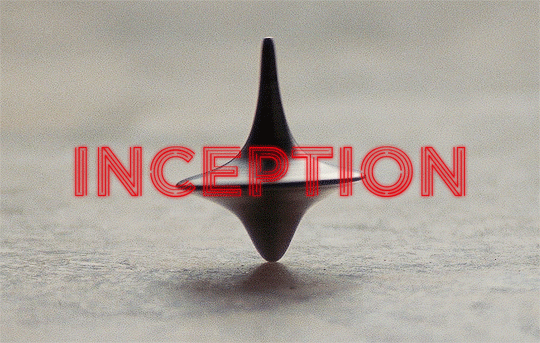





Christopher Nolan Filmography (1998-2023)
#christopher nolan#oppenheimer#filmedit#filmgifs#doyouevenfilm#userrobin#fyeahmovies#cinemapix#moviegifs#chewieblog#the dark knight#memento#tenet#dunkirk#interstellar#the dark knight rises#inception#insomnia#following#gifs#kane52630#movie
2K notes
·
View notes
Text



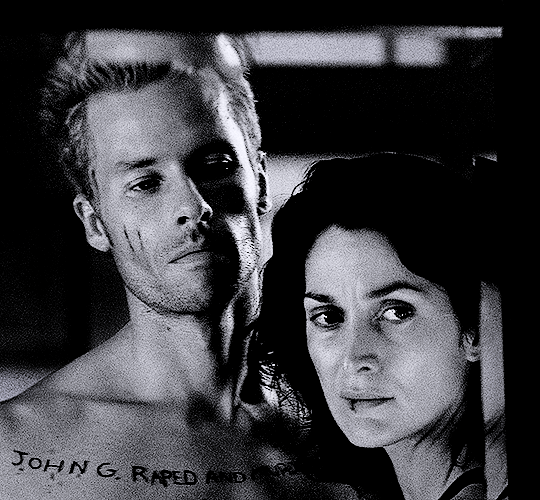


I have to believe in a world outside my own mind. I have to believe that my actions still have meaning, even if I can't remember them. I have to believe that when my eyes are closed, the world's still there. Do I believe the world's still there? Is it still out there? Yeah. We all need mirrors to remind ourselves who we are. I'm no different.
MEMENTO 2000
dir. Christopher Nolan
#filmedit#filmgifs#moviegifs#fyeahmovies#userjack#tusertyler#userkraina#userlosthaven#userraffa#tuserdana#useranimusvox#userstream#userfilm#chewieblog#cinemapix#useroptional#userbbelcher#memento#*#*gifs#was supposed to post this an hour ago but got sidetracked trying to catch up on ***blr drama 💀 chile anyways
667 notes
·
View notes
Text
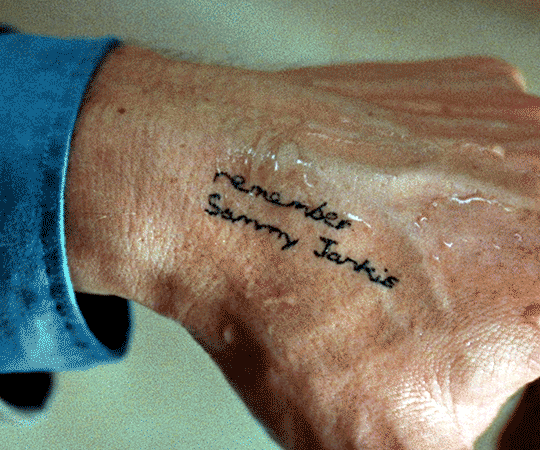





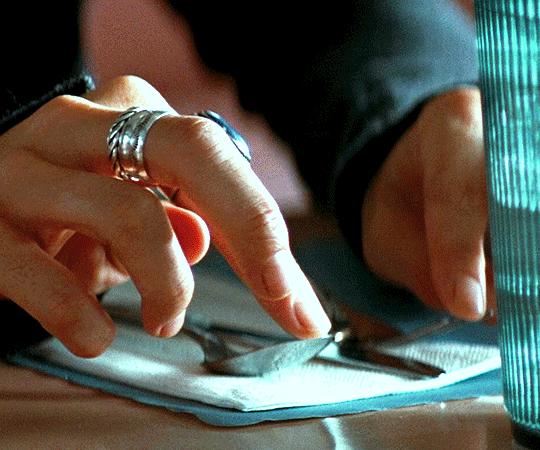
2024 Film Diary
⤷Memento (2000) dir. Christopher Nolan ⋆⋆⋆⋆⋆
#memento#userbunneis#tusercat#userraffa#userhann#omgari#usergiu#underbetelgeuse#usersmblmn#userfanni#mine#24films#tvfilmsource#filmtvcentral#userfilm
365 notes
·
View notes
Note
Ive seen people talk about what memento of Crowley Azieaphale has and did I miss something? Or is it just fantheories
Hiya! Mmme Crowley has (had?) the eagle statue :). (maybe now it's shrunken in Bentley's trunk :D).



448 notes
·
View notes
Text





You sad, sad freak. I can say whatever the fuck I want, and you won't remember. We'll still be best friends... or maybe even lovers.
MEMENTO (2000) Dir. Christopher Nolan
#memento#mementoedit#filmedit#filmgifs#movieedit#moviegifs#cinemapix#filmtvdaily#dailyflicks#filmreel#fyeahmovies#lily edits#the way my jaw dropped at this scene this first time i watched this... miss moss was Acting!
283 notes
·
View notes
Text
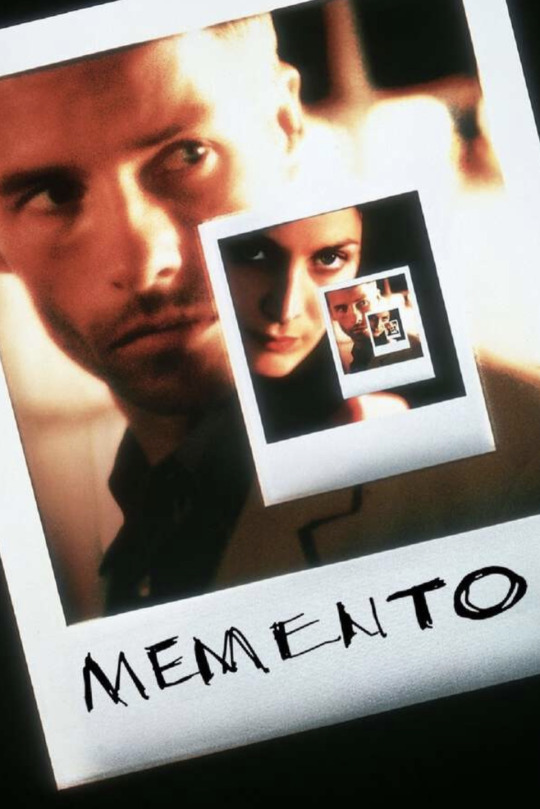
#movies#polls#memento#memento 2000#memento movie#2000s movies#christopher nolan#guy pearce#carrie anne moss#have you seen this movie poll
94 notes
·
View notes
Text

Mementotlan Goblin
#Mementotlan Goblin#yugioh#ygo#Memento#Goblin#I will never not be hyped for an archetype that references prior monsters#Fiend#DARK#Goblin Calligrapher
129 notes
·
View notes
Text





Hot take: I think we all should be honest and admit many non-Batman movies by Nolan would have been better with Batman in it.
221 notes
·
View notes
Text

rip to sammy jankis but i'm different
#fanart#memento#memento (2000)#leonard shelby#guy pearce#kinda been going insane over this movie not gonna lie#sticks with you y'know#good film. highly recommend#blood
97 notes
·
View notes
Text


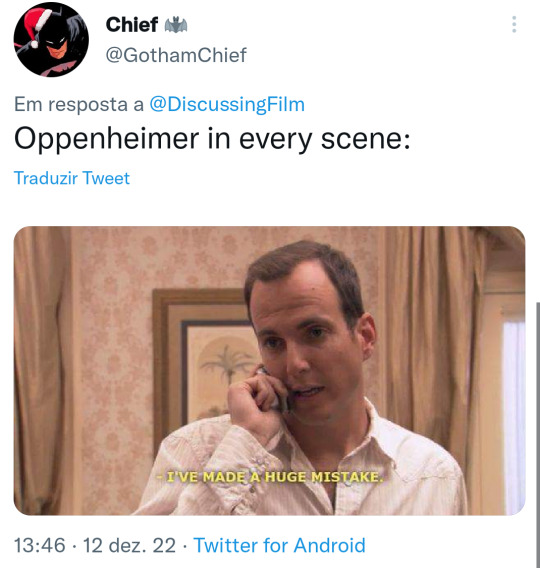







#play skier Boi by Avril Lavigne for that last one lmao#Christopher nolan#Oppenheimer#cillian murphy#interstellar#tenet#dark knight#Dunkirk#inception#memento
915 notes
·
View notes
Text









You know what? I think I'm gonna use you. I'm telling you now because I'll enjoy it so much more if I know that you could stop me if you weren't such a fucking freak.
CARRIE-ANNE MOSS as NATALIE
MEMENTO 2000 - dir. Christopher Nolan
#filmgifs#moviegifs#fyeahmovies#userjack#tusertyler#userkraina#userlosthaven#userraffa#tuserdana#memento#carrie anne moss#chewieblog#userfilm#userbabysitter#userstream#useroptional#userbbelcher#femaledaily#*#*gifs#i forgot how cunty she is in this movie. women's wrongs ❤️
651 notes
·
View notes
Text

#movies#brick 2005#sing street#napoleon dynamite#the art of self defense#mid 90s#memento 2000#memento#fight club#whiplash#whiplash movie#rango#edward scissorhands#scott pilgrim#scott pilgram vs the world#sound of metal#a clockwork orange#ferris bueller's day off#little shop of horrors#taxi driver 1976
148 notes
·
View notes
Text


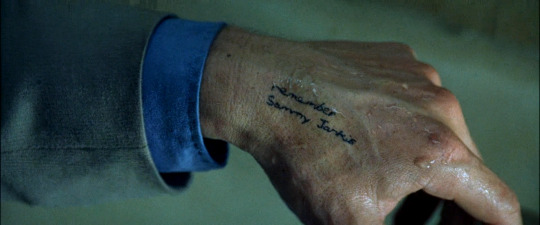







#219
#memento 2000#2000#christopher nolan#memento#guy pearce#carrie anne moss#joe pantoliano#Leonard shelby#mystery#2000s movies#cinematography#movie screenshots#movie screengrabs#movie screencaps#movie frames#cinematography appreciation#movie#movies#escapism through film#the beauty of cinema#cinema#film#photoset
63 notes
·
View notes
Photo





Carrie-Anne Moss as Natalie
MEMENTO (2000) Dir. Christopher Nolan
#memento#carrie-anne moss#filmedit#movieedit#filmgifs#moviegifs#dailytvfilmgifs#filmtvdaily#dailyflicks#cinemapix#00sedit#femaledaily#femalegifsource#userladiesofcinema#it's thirsting hours#again#lily edits
434 notes
·
View notes
Photo

Memento (2000) dir. Christopher Nolan
475 notes
·
View notes
Text
'"Oppenheimer" is the summer blockbuster of the year. The visually and sonically compelling film does a lot of things right from examining the existential dread associated with our feeble humanity and analyzing the moral qualms with human ingenuity and its devastating outcomes that showcase we are the culprits of our own destruction.
But it also does some things wrong too. It has a woman problem.
Christopher Nolan's three-hour-long biopic tells the story of the brilliant quantum physicist, J. Robert Oppenheimer (Cillian Murphy) based on the biography "American Prometheus." The Oppenheimer we uncover in Nolan's film stresses that he is a charmer – he's a womanizer. Nolan wants the audience to know that not only is Oppenheimer one of the most important historical figures in the 20th century, but he also can pull a Communist female Stanford grad student.
One of the most polarizing aspects of the film is Oppenheimer's on again, off again relationship with said grad student, Jean Tatlock (Florence Pugh). Some would say the way Nolan portrays the relationship and Jean, and her inevitable death by suicide is indicative of a larger issue with the depiction of women in his films.
In their first encounter, they quickly find themselves in bed together. In a controversial scene, Jean and Oppenheimer are having sex while he reads Bhagavad Gita, a sacred text in Hinduism. He reads the line, "Now I am become death, the destroyer of worlds," during the act itself. Hindu right-wing nationalists called the scene an "attack on Hinduism."
But that isn't the only sex scene between the two in the film. Further into the behemoth of a film, in McCarthy-era America, a room full of government officials question Oppenheimer's former communist ties. He reveals to the board his previous relationship with Jean and how it evolved into an affair. He's now married to Kitty Oppenheimer (Emily Blunt), who is there in the room as he admits to his extramarital affair.
Nolan portrays this confession in the most blatant way possible. Without warning or explanation, a naked Jean is seen straddling and having sex with Oppenheimer as he sits in the chair being interrogated. Is it his imagination? Is it Nolan's one-the-nose way of showing the impact of the confession? Regardless, the audience sees this as the couple going at it while Oppenheimer is staring at the board of men questioning him. It's creepy. The imaginary Jean even glances directly at his wife – his wife who just found out Oppenheimer had been cheating on her for years. Is this storytelling device attention-grabbing? Absolutely, but not in a good way.
It's vital to point out the flaws in a filmmaker's perspective when it's used to only service a man's story and nothing else. As an audience member, the context of the scene and what it does for the larger narrative matters; it is a part of the moviegoer's entire film experience. And as I was watching the second sex scene with Oppenheimer and Jean, I gasped at how disjointed it felt from the larger story Nolan was attempting to illustrate. Sex scenes aren't inherently controversial, nor do they have to be, especially if they are filmed with appropriate boundaries and respect toward the actors and characters. But in "Oppenheimer" something about the audience watching the sex scene in the same way the characters in the interrogation room watched it – feels icky and voyeuristic. And also puzzling.
"Oppenheimer" is an engrossing film. Its riveting acting and nonlinear storytelling infused with cinematic shots of the galaxy and stars hold the audience in a trance. Well, that is until you watch that ill-advised foray into filmmaking voyeurism. It completely snatches you out of the film and puts you back into your body.
Moreso, the scene wouldn't be so jarring if there wasn't such little Jean in the film. Pugh's talents are wasted as she attempts to embody an emotionally embattled intellectual. Jean is a seemingly dark, unconventional type of woman from the 1940s. She is studying to be a psychiatrist but also struggles with depression, and it was speculated that she was queer. But we don't really receive any of this information from the film. We can tell that she's stubborn, volatile and complicated but we are more or less told that through Oppenheimer's perspective of her as his love interest.
This also counts for his wife, Kitty – another female character with unbridled, untapped potential. But of course, she only exists in the roles of love interest, mother and Oppenheimer's conscience. The film only slightly touches on Kitty's tragic past, potential mental health issues and rejection of motherhood. Thankfully, Blunt's acting makes the role feel fuller than it is written to be.
If we address Nolan's track record with female characters, he is known for two tropes: Dead Wife and Woman in A Refrigerator. Across the filmmaker's extensive work, he has a proclivity for fridging, that is killing off a female love interest – in films like "Memento," "The Prestige," "Inception" and "The Dark Knight" – as an alluring and tragic backstory for his male protagonists just like he did with Jean. Of course, she is based on a real person, but Nolan's treatment of her and her tragic death is the same as if she were fictional. The audience is left with very little understanding of Jean, not even with her tragic death. Instead, her most indelible scenes are as Oppenheimer's sex object or in death, a way to humanize the physicist. (And when Nolan doesn't get around to killing off his female characters, he sidelines them like Kitty or Elizabeth Delicki's character in "Tenet.")
Sure, you can argue the film being named "Oppenheimer" means it's entirely about him, and all the supporting characters should only act to elevate his story. The script was even written in first person to convey that every character is just a piece in Oppenheimer's narrative.
However, just because the story is titled "Oppenheimer" doesn't mean one has to adhere to such tunnel vision in storytelling. Case in point is another film named for a singular person – that came out on the same day as " Oppenheimer" in fact – and proves that argument flimsy at best.
"Barbie" does what "Oppenheimer" fails to do.
"Barbie" follows the journey of the human-sized doll (embodied by Margot Robbie) through her existential awakening, crisis and eventual empowerment. But it also spends a significant chunk of its runtime to give her counterpart Ken (Ryan Gosling) space to explore his "neediness, loneliness and identity crisis." Gary Kramer writes for Salon that Ken "hijack[s] the plot for long stretches and force[s] Barbie to help him, not the reverse."
Ken is Barbie's accessory boyfriend but he isn't treated as just her accessory boyfriend. In the writing, Greta Gerwig and Noah Baumbach allow Ken ample room for self-discovery. Ken is allowed to explore the human world without the need to be attached to Barbie's hip. He searches for his purpose and identity. He's even given a whole musical dance number to dive into his interiority. "Barbie" does what "Oppenheimer" fails to do. It gives purpose and depth to a supporting character's arc – depth that is entirely crucial to the emotional center, vulnerability and gravitas of a character like Barbie.
Ultimately, Nolan barely scratches the surface with his female ensemble and doesn't do their larger-than-life experiences justice. It just feels like a tired attempt to show us Nolan knows women exist but the catch is they do not exist outside of their relationships to men. (Sorry, Bechdel.) Their pain and suffering are a way to transform a man into the protagonist of his story, not hers.'
#Oppenheimer#Christopher Nolan#Cillian Murphy#Florence Pugh#Jean Tatlock#Kitty#Emily Blunt#Barbie#Greta Gerwig#Noah Baumbach#American Prometheus#Bhagavad Gita#Memento#The Prestige#Inception#The Dark Knight#Tenet#Margot Robbie#Ryan Gosling
168 notes
·
View notes